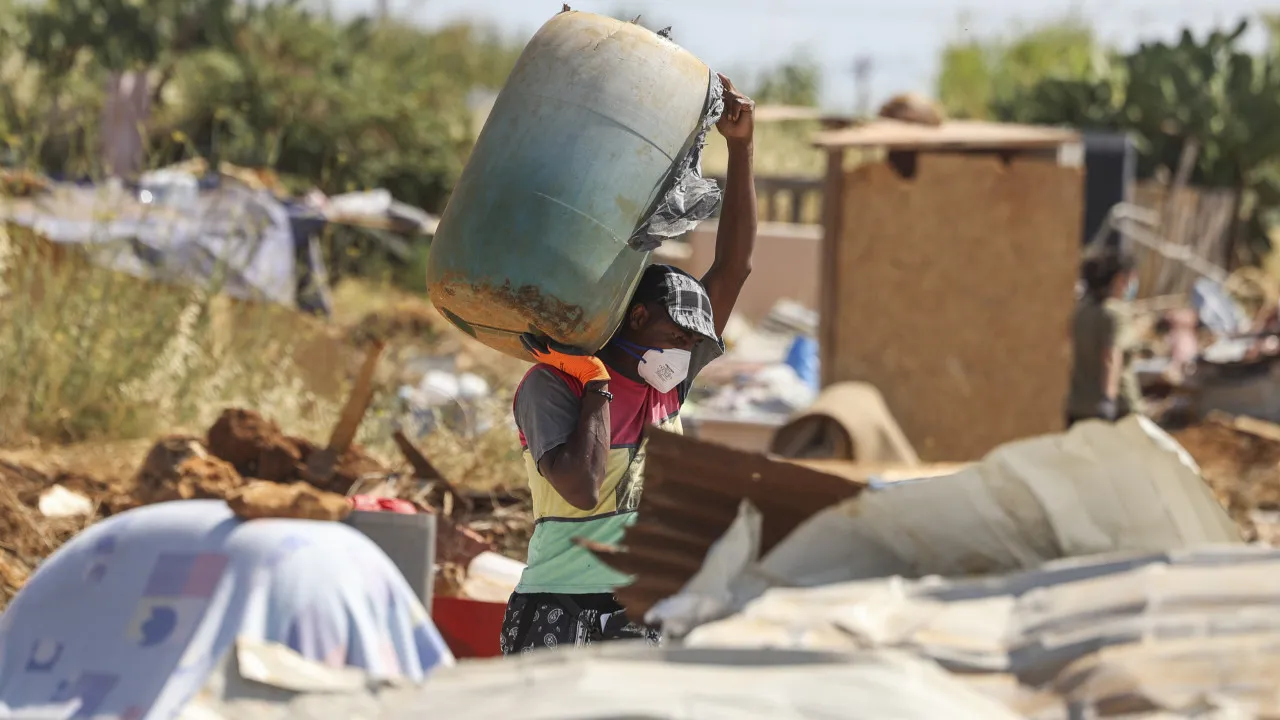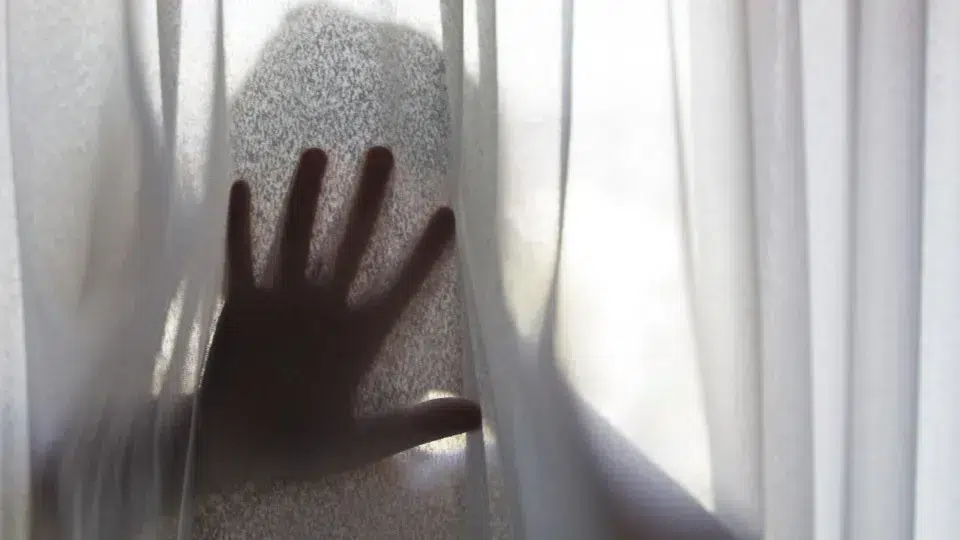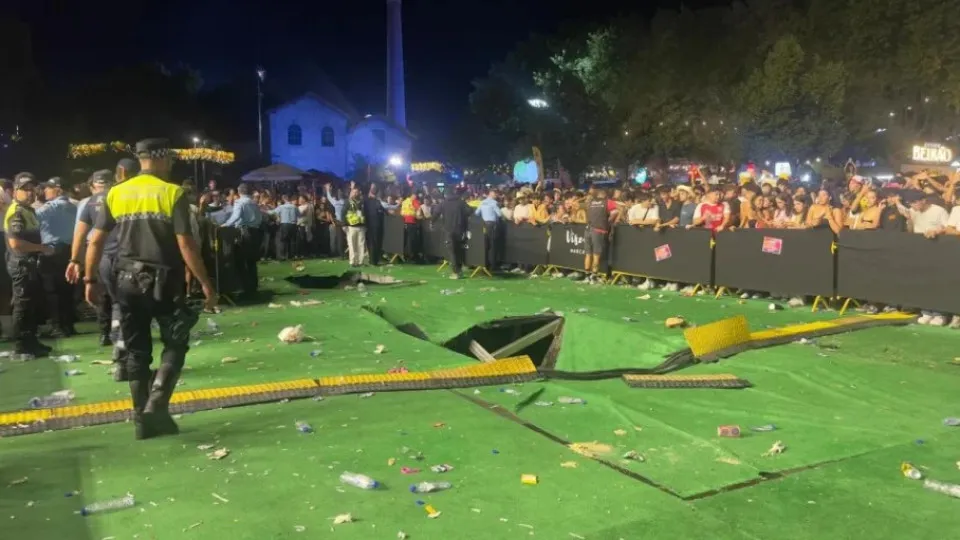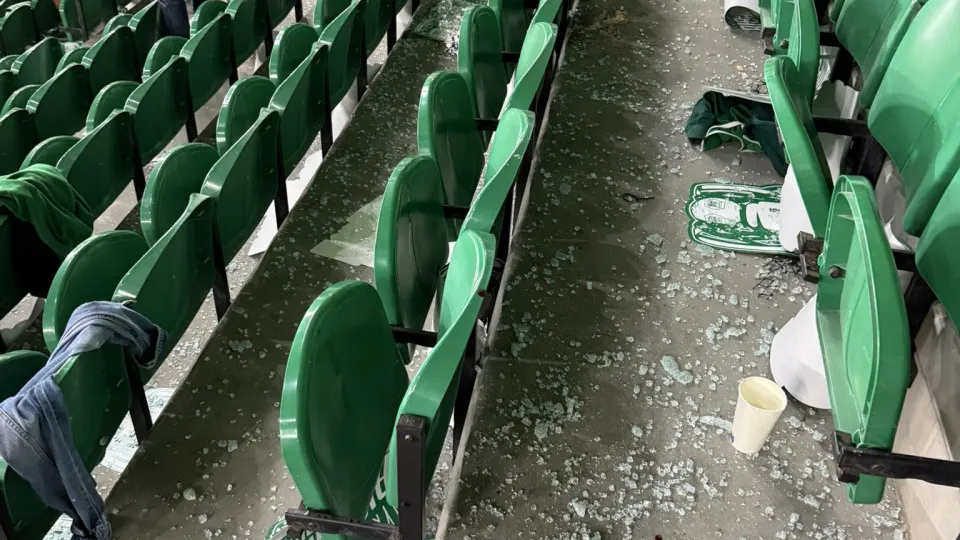
Amidst significant tasks ahead, around fifty volunteers responded to the call from the Vida Justa movement to travel to Talude Militar to assist in clearing debris left by demolition work.
This “solidarity action,” described as an “act of brotherhood,” aimed to “restore a bit of the dignity taken from [the neighborhood’s residents]” and simultaneously “attempt to keep the area clean, remove what the community no longer wants, and help organize the belongings of those left stranded,” explained José Pina, a Vida Justa volunteer.
One group was tasked with collecting trash, while another focused on separating reusable undamaged materials, such as zinc sheets and wooden planks.
Under a parasol, a team managed food donations, ensuring meals for dozens of men, women, children, and babies staying at Talude Militar, camping in tents where their homes once stood.
The Loures municipality commenced operations on Monday to demolish 64 precarious homes, housing 161 people.
Over two days, 55 homes were demolished before operations were halted by a Lisbon court injunction filed by 14 residents.
The aid received by Talude’s residents is significant, according to Carla Santos, a resident and coordinator of food and water distribution. She noted the pressing need for ready-to-eat meals due to the lack of cooking facilities.
The nearby recreational society offers residents a place to store belongings and access to bathing facilities, crucial for those needing to work the next day.
“Most of them work, including in companies that service the City Council, firms like Carris Metropolitana, and in homes caring for the elderly,” described Kedy Santos, a municipal deputy for CDU in Loures, who also volunteered to help with the cleanup.
“These people are not here seeking handouts. If there are two people living off subsidies here, it would be a miracle; they barely have the means to access them,” he emphasized.
“We have many children in the school system, and during this school break, parents need to work,” added Carla Santos, highlighting local associations offering activities for children.
Civil society joined “around 40” technicians in a joint operation by SIMAR (municipal services of Loures and Odivelas) and Loures City Council, alongside the parish councils of Santo António dos Cavaleiros, Camarate, Unhos, and Apelação.
They are using a backhoe, three crane trucks, three non-crane trucks, and a 20-cubic-meter garbage container, explained two SIMAR technicians on-site, noting they conduct material and waste separation.
They remarked on being “well received” by the community and acknowledged the operation is “quite difficult,” estimating it might require “two days of work, provided all resources are available.”
However, “it’s going very well so far,” one technician evaluated, mentioning they were “mobilized last night” after Vida Justa scheduled the volunteer cleanup.
Kedy Santos noted that the technicians showed “empathy” towards the situation, highlighting residents’ and activists’ willingness to engage in dialogue to find a solution.
“We agreed they would handle the trash removal,” he said, thanking municipal workers for their “arduous” cooperation in the cleaning operations.
“There was no need for us all to be here, almost frantically doing this work if the demolition had been controlled and appropriate, not nearly overbearing or excessively done,” he criticized.
He further lamented the “absence of any information from the Government,” which has remained “silent in the valleys of misfortune.”
For the municipal deputy, “we all hold responsibility, not just the municipality,” which he criticized for failing to offer “adequate solutions.”
Some “candidates for deputy, for mayor,” he claimed, “lied by saying they spoke with the people,” criticizing “some who never even approached these individuals, perceiving them as non-existent.”
They are “unknown presents,” described Carla Santos, who was “born and raised” in the area and has supported Talude Militar since the 1990s.
“Even the route we take, only those living here or with friends here know the place, the territory; otherwise, people pass through the parish without even knowing it exists,” highlighted the anthropologist.
“Structural problems require structural solutions, and many social issues need addressing here, not just housing problems. There are many intertwined factors here demanding answers, and we are intertwining everything,” she warned.
“In Portugal, we practice collective care in social intervention,” she lamented, calling for “political will” and the involvement of “robust” social organizations.




